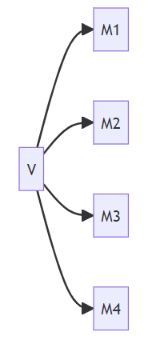Synchronization Primitives in C++20 -- Shivam Kunwar
 In C++20, the standard library introduced new synchronization primitives: std::latch and std::barrier. These are the utilities designed to coordinate between concurrent threads.
In C++20, the standard library introduced new synchronization primitives: std::latch and std::barrier. These are the utilities designed to coordinate between concurrent threads.
Synchronization Primitives in C++20
by Shivam Kunwar
From the article:
What is a synchronization primitive?
In concurrent programming, synchronization primitives are the fundamental tools that help in managing the coordination, execution order, and data safety of multiple threads or processes that run concurrently.
Briefly said, they ensure that:
- multiple threads don’t simultaneously execute some specific segment of code (a “critical section”)
- the program and the data remain in a consistent state
- deadlocks (where threads wait indefinitely for resources) and race conditions (where the outcome depends on the timing of accessing the shared data by a thread) are prevented or managed
There are multiple synchronization primitives in C++; for example, mutual exclusion, condition variables, atomic operations, locking mechanisms, etc.
In C++20, we have two additional synchronization primitives: latches and barriers.
Let’s discuss both of them.
std::latch
A std::latch is a synchronization primitive that permits a certain number of count_down operations (decrements) before allowing one or more threads to pass the wait point. A latch cannot be reused once its internal counter reaches zero.
How do we use a latch?
- A std::latch object is created with an initial count.
- Multiple threads can decrement this count using the count_down method.
- Threads can call wait, which block until the internal count of the latch reaches zero.

 When you transition from older C++ standards like C++11 or C++14 to the latest C++17 and C++20 it can be a tough journey. It's essential for writing clean and easy-to-maintain code, but many developers find the process challenging.
When you transition from older C++ standards like C++11 or C++14 to the latest C++17 and C++20 it can be a tough journey. It's essential for writing clean and easy-to-maintain code, but many developers find the process challenging.
 When working with C++ standard containers and functions, handling references can sometimes lead to unexpected behavior, particularly with copy semantics. This is where
When working with C++ standard containers and functions, handling references can sometimes lead to unexpected behavior, particularly with copy semantics. This is where  When designing a circular doubly-linked list, the initial challenge is determining how to manage the construction of new nodes in relation to existing ones. While constructors seem like a natural fit for placing nodes before or after a given node, overloading them can lead to ambiguity and poor design choices. Instead, using distinct tag types or factory methods provides clearer intent, ensuring flexibility while respecting the constraints of guaranteed copy elision for node addresses.
When designing a circular doubly-linked list, the initial challenge is determining how to manage the construction of new nodes in relation to existing ones. While constructors seem like a natural fit for placing nodes before or after a given node, overloading them can lead to ambiguity and poor design choices. Instead, using distinct tag types or factory methods provides clearer intent, ensuring flexibility while respecting the constraints of guaranteed copy elision for node addresses. Previously, I tried to answer the question:
Previously, I tried to answer the question:  C++ On Sea took place in Folkestone again in February this year. Sandor Dargo shares an overview of his favourite talks and some emergent ideas.
C++ On Sea took place in Folkestone again in February this year. Sandor Dargo shares an overview of his favourite talks and some emergent ideas.